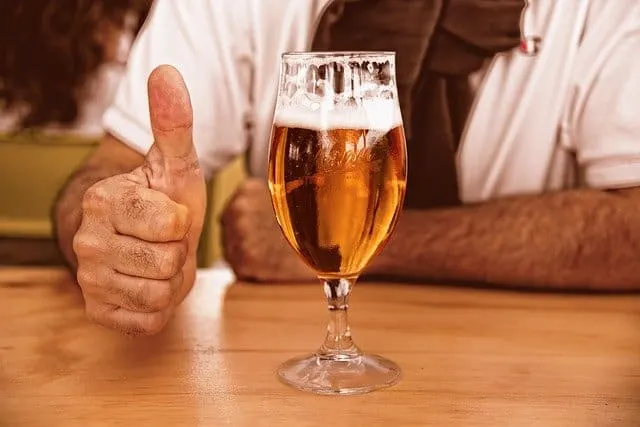
Sipping a cold beer at the end of a long day is a popular way to relax. You might enjoy matching your latest craft brew with a new dinner recipe or invite friends over to have a drink and hang out. Many people don’t know much about their beer beyond where they get it and how much it costs. This guide explains what you should know about your evening beer so you can make informed decisions about when or what you drink.
1. It’s High in Calories
Fermentation is the primary process in beer brewing. Yeast turns glucose into alcohol, but it also increases the calories in each bottle. Beer isn’t the drink you want to choose if you’re trying to lose or maintain weight. If you drink it every day, it’ll add calories to your diet that you might otherwise want to avoid.
2. It Doesn’t Need Preservatives
Anyone who prefers to live an organic lifestyle will be pleasantly surprised that beer is all-natural. It doesn’t require preservatives because it already uses hops as the main ingredient. Hops contain bitter acids that inhibit bacterial growth even when a brand uses very little of it. You won’t have to look very far to find a beer that’s free of chemical ingredients.
3. It Has Vitamin B
Vitamin B directs your body’s energy to vital organs. Everyone needs it from natural sources like whole foods, but you can also find it in beer. You could potentially get 5-10% of your daily intake of vitamin B from a single 12-ounce can of beer, depending on the brew.
It’s a surprising benefit that most people don’t know, but always ensure that your evening beer is a secondary source of nutrients outside your daily meals. You can also find vitamin B in ordinary foods available at standard grocery stores, like meat, milk and oranges.
4. It Can Damage Your Liver
You might think that one beer won’t hurt your body, but that’s not true if you drink every day. Every time you drink alcohol, it passes through your liver for detoxification and damages the organ because it’s a toxin. Any type of alcohol will do this, including your evening beer. Consider that risk if you’ve spent years drinking or deal with other health conditions that already put your liver at risk.
5. It Often Contains Grain
Breweries use grain to fuel the fermentation process, which introduces gluten into their product. Gluten is the primary protein source in grains, so it’s in most beers. Anyone who’s gluten intolerant or sensitive should research their beer. If it contains barley, wheat or rye, it could cause an allergic reaction.
6. It Could Increase Weight Gain
The high caloric content of beer makes it an easy culprit for sneaky weight gain. Drinking one tall boy beer size at dinner won’t instantly make your bathroom scale jump a few pounds, but it increases your caloric intake if enjoyed every day. The 200 calories that take a few minutes to consume might equal a slice of cake or a large serving of fries that you’d typically turn down if you’re watching your weight.
The calories also aren’t the only factor at play. Alcohol irritates the digestive system and causes water weight gain because irritated cells hold onto more water. Your bathroom scale could show weight gain, but it’s water instead of fat. It’s something to keep in mind if weighing yourself is a critical part of your lifestyle, like if you’re a professional wrestler.
7. It May Cause Cancers
Even in small daily amounts, drinking beer could cause cancer over time. Researchers found that alcohol could cause oropharynx and larynx cancer because it comes into direct contact with the cells in your throat and mouth. There’s no way to get around this issue, so keep it in mind if you continue to drink beer. If those cancers already run in your family, it’s an instigative factor you could easily avoid and decrease your chances of developing them.
8. It Might Reduce Insulin Resistance
When your body becomes resistant to insulin, you’re more likely to develop type two diabetes. Diabetes prevents your body from maintaining a healthy blood sugar level after meals and snacks. It will change your life and become a permanent part of your diet, but a beer with your evening meal might help avoid that.
Recent evidence suggests that light to moderate alcohol consumption reduces your risk of diabetes by maintaining your body’s sensitivity to insulin. Drinking beer shouldn’t be your primary form of keeping diabetes at bay if it’s a personal health concern, but it’s a surprisingly helpful factor that occasional beer connoisseurs might appreciate.
Learn More About Your Evening Beer
Drinking beer or alcohol of any kind could hurt your health even with the associated benefits. Consider how often you drink alcohol and if it’s always necessary to enjoy your meal or social event. Protecting your health with moderation and research is a great way to take care of yourself.
- Sagittarius Man & Gemini Woman Love and Sex Compatibility - January 31, 2024
- Taurus Ascendant Rising Personality Traits in Men (Guide) - January 31, 2024
- How to Seduce and Attract a Sagittarius Man (Seduction Tips) - January 31, 2024
